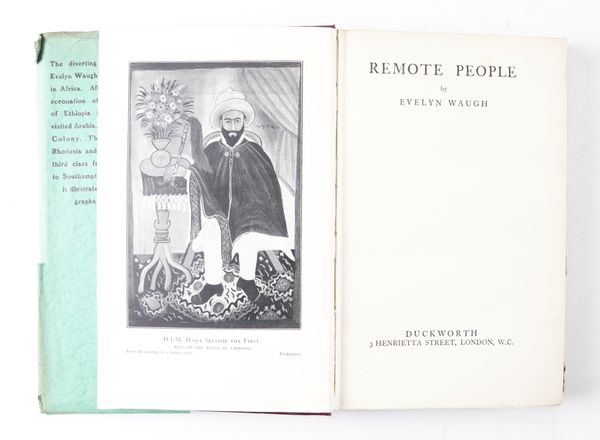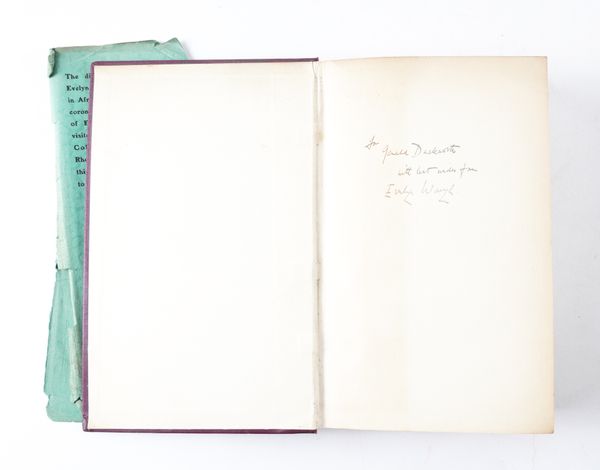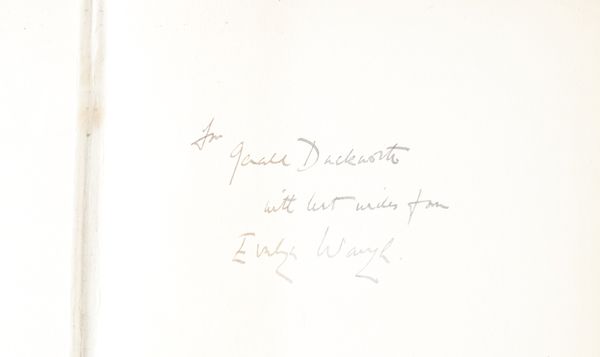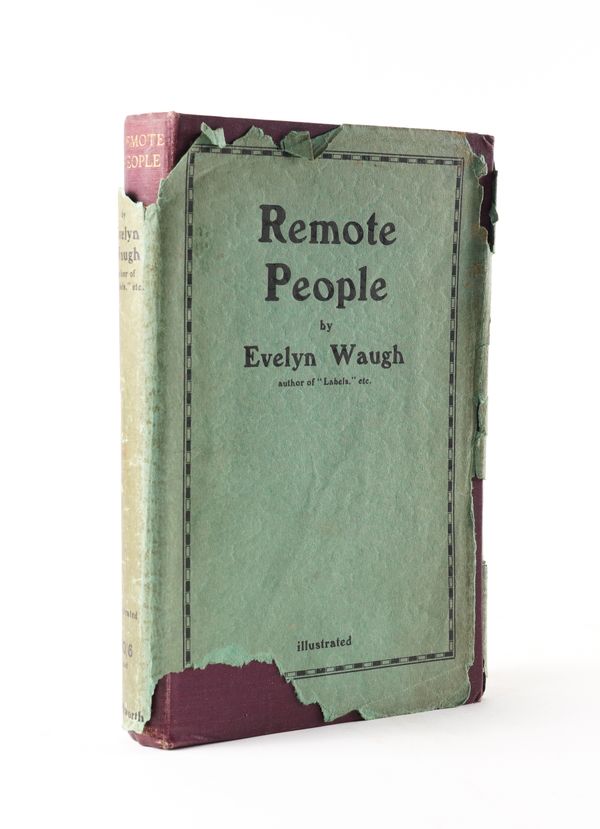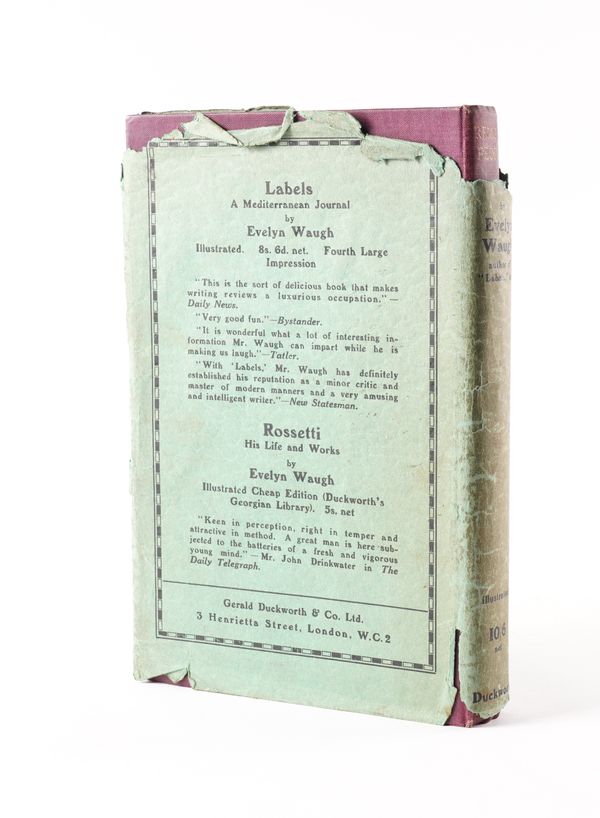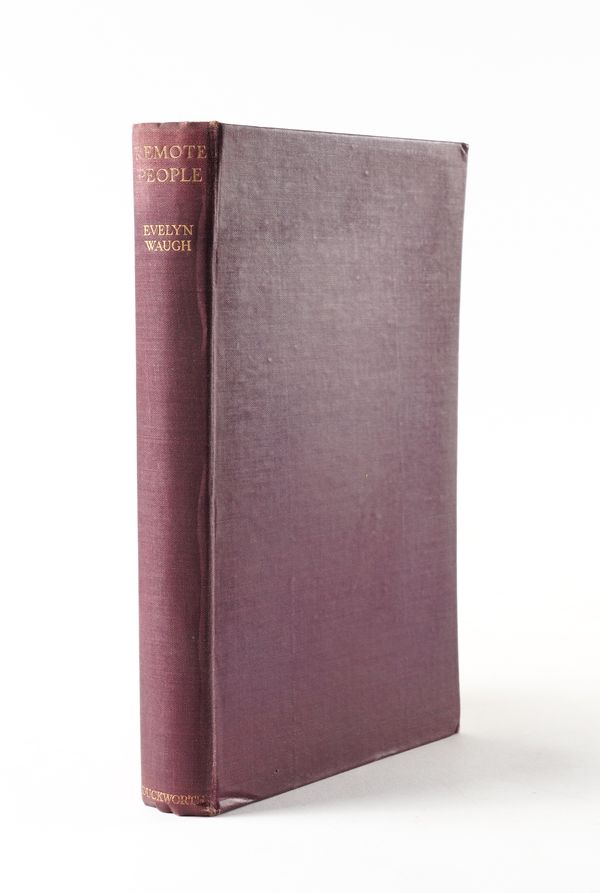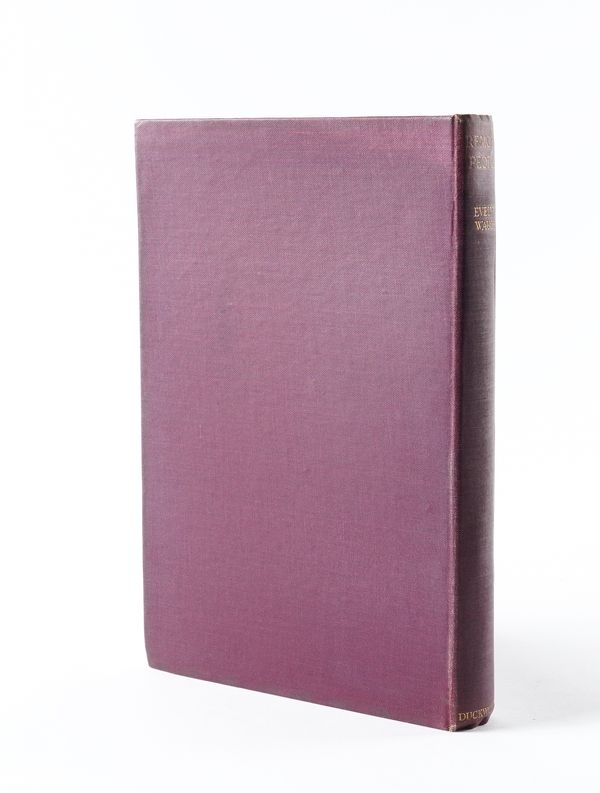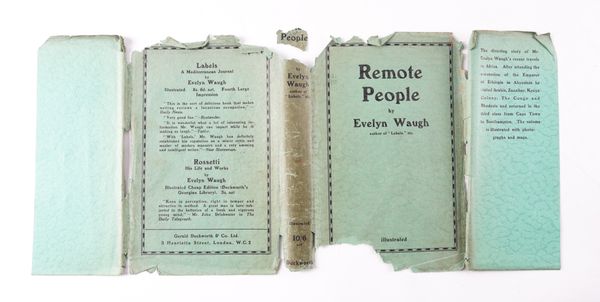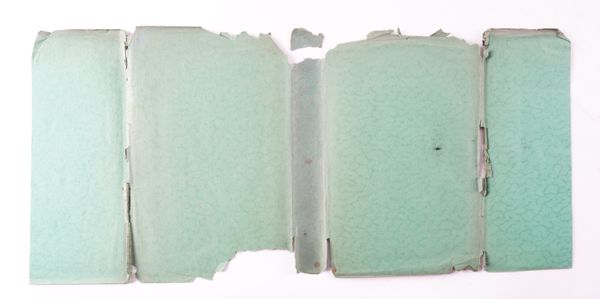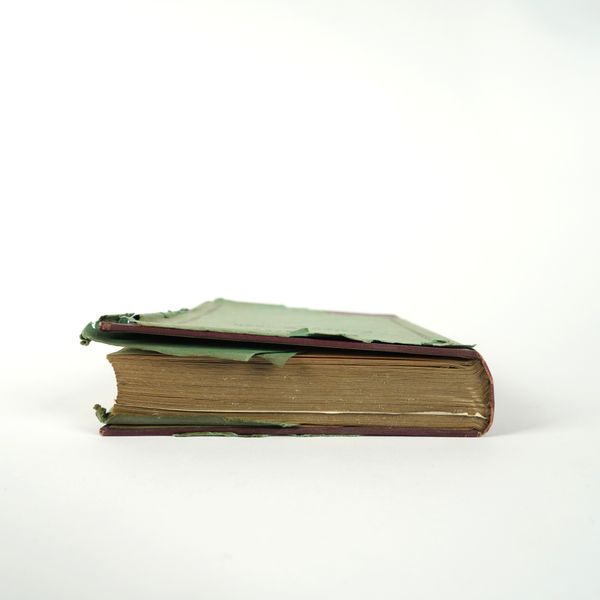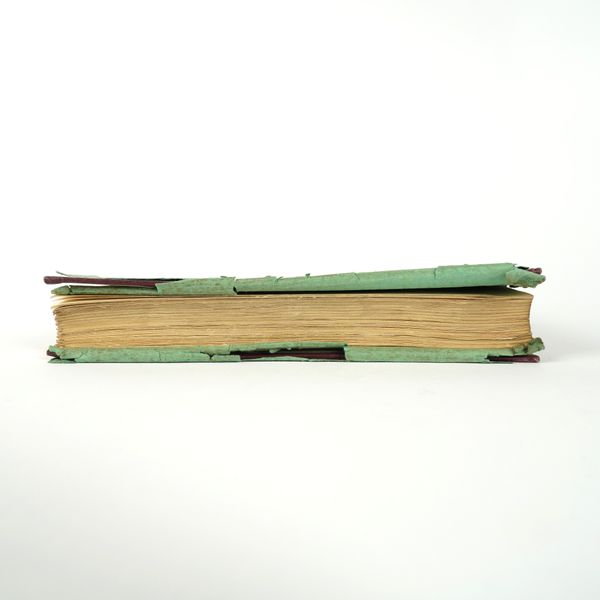WAUGH, Evelyn (1903-66). Remote People, London, Duckworth, 1931, 8vo, original burgundy buckram gilt, dust-jacket (jacket torn with loss). FIRST EDITION, IMPORTANT PRESENTATION COPY, inscribed, "For Gerald Duckworth with best wishes from Evelyn Waugh."
| Estimate: | £1,000 - £1,500 |
WAUGH, Evelyn (1903-66). Remote People. London: Duckworth, 1931. 8vo (220 x 140mm). Half title, monochrome frontispiece, 2 folding maps, 6 plates. Original burgundy buckram, the spine lettered in gilt, green dust-jacket lettered in black (lightly bumped and rubbed at edges, the dust-jacket torn with loss and fraying to corners, with a larger section lacking from the lower left corner of the upper wrapper, the loss not affecting letters to the upper wrapper but with the loss of the title at the head of the backstrip, although with a detached fragment bearing the word "People" preserved). FIRST EDITION of this "... diverting story of Mr. Evelyn Waugh's recent travels in Africa. After attending the coronation of the Emperor of Ethiopia in Abyssinia he visited Arabia, Zanzibar, Kenya Colony, The Congo and returned in the third class from Cape Town to Southampton" (from the front turn-in). It received consistently positive contemporary reviews in the press. IMPORTANT PRESENTATION COPY, the front free endpaper inscribed, "For Gerald Duckworth with best wishes from Evelyn Waugh." In 1898, Gerald Duckworth (1870-1937) founded the London publishing company that still bears his name today ("Duckworth") although it was originally called "Gerald Duckworth and Company Ltd." In addition to representing Evelyn Waugh (concentrating on his earlier non-fiction and travel writing), the firm published a diverse range of writers which reads like a 'Who's Who' of 20th-century literature including, inter alia, Hilaire Belloc, Anton Chekhov, John Galsworthy, Henry James, D. H. Lawrence, Virginia Woolf, Anthony Powell, Simone de Beauvoir and the Sitwells. Gerald Duckworth's mother - whose first husband and father of Gerald had died before Gerald's birth - went on to marry Sir Leslie Stephen (1832-1904), himself a notable author and critic, and their four children included Virginia Woolf and Vanessa Bell. Whilst this would have placed Gerald Duckworth in the orbit of 'The Bloomsbury Group', it was not a coterie with which Waugh would have found an instinctive sympathy. We have been unable to trace another example of a presentation copy from Waugh to Duckworth. RARE.
